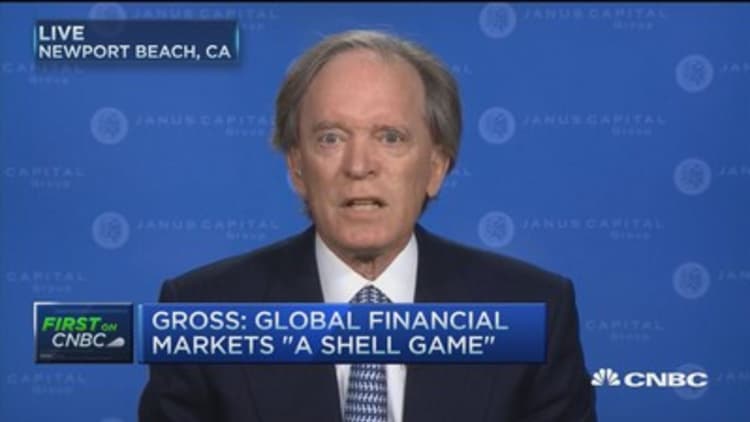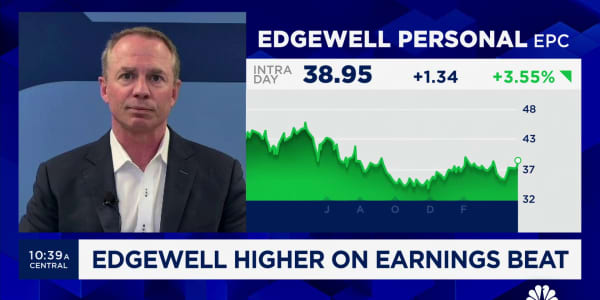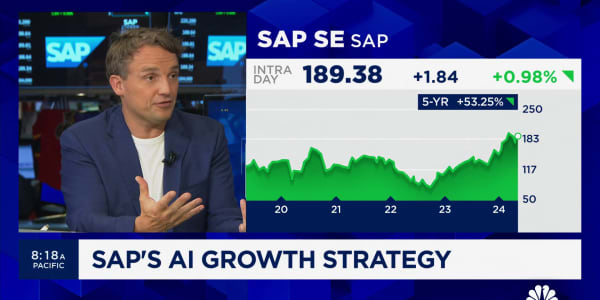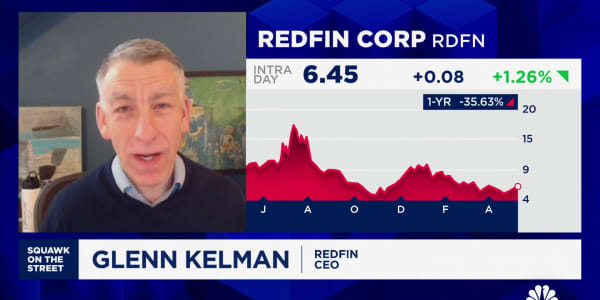
"Money for nothing" interest rate policies have failed, bond guru Bill Gross said in a broadside Thursday against global central banks.
High-risk companies have been able to borrow on the cheap and stock markets have soared, but there's been little in the way of true investment to show for all the years of low rates, the Janus Capital fund manager said.
When central banks, particularly the Federal Reserve, began their aggressive easing programs, the thought was that boosting asset prices and lowering the cost of money would spur business investment that would flow through the broader economy.
The indeed has soared about 210 percent during the bull market that began in 2009. But as evidenced—again—by Thursday's tepid 2.3 percent quarterly gain in gross domestic product, aggressive growth has proved elusive.
"In the real economy, it seemed almost straightforward as well: if a central bank could lower the cost of debt and equity closer and closer to zero, then inevitably the private sector would take the bait—investing in cheap plant + equipment, technology, innovation—you name it," Gross wrote. "'Money for nothing—get your clicks for free,' I suppose. But no. Not so."
Read MoreGovernment: Years of growth weaker than we thought
In addition to the esoteric narrative that often accompanies Gross' monthly missives—he gave a shoutout to CNBC's Rick Santelli as a contrarian fighting against the interest rate consensus—he also tossed his hat into the ring of Fed speculation.
Though the Fed Open Market Committee's post-meeting statement this week was brief and seemingly unremarkable, Gross joined a growing round of speculation expecting a September rate hike.
"But the reason will not be the risk of rising inflation, nor the continued downward push of unemployment to 5 percent," he said. "The reason will be that the central bankers that are charged with leading the global financial markets—the Fed and the (Bank of England) for now—are wising up; that the Taylor rule and any other standard signal of monetary policy must now be discarded into the trash bin of history."
Read MoreGlobal financial markets a shell game: Bill Gross
Whether the Fed actually does move on rates is a tossup, and Gross' hope for a repudiation of extreme monetary easing seems unlikely.
Instead, the Fed likely will use a declining interest rate plus some firming in inflation—the second quarter did see a 2.9 percent increase in personal consumption expenditures, a key Fed metric—to justify any policy moves.
In the fallout, Gross wondered what would happen to the "zombie" companies issuing junk bonds, as well as those firms that have spent trillions on stock buybacks to boost share prices.
"Low interest rates may not cure a fever, Gross said, "they may in fact raise a patient's temperature to life threatening status."
Read MoreCramer: Fed is right to hold firm on interest rates






